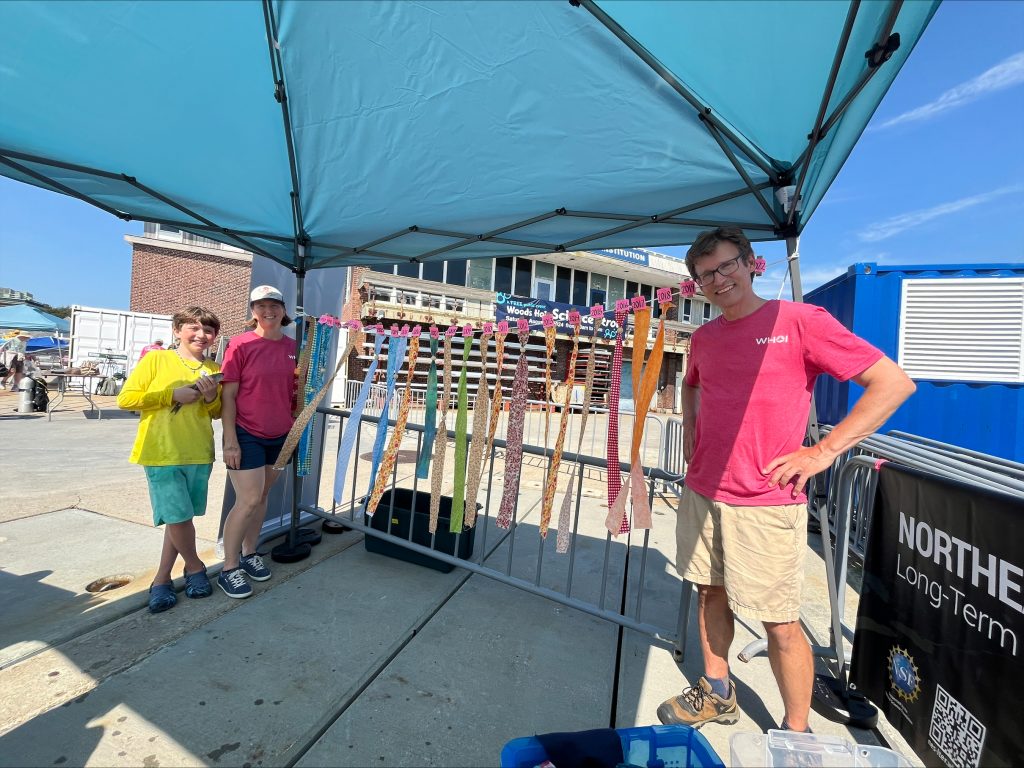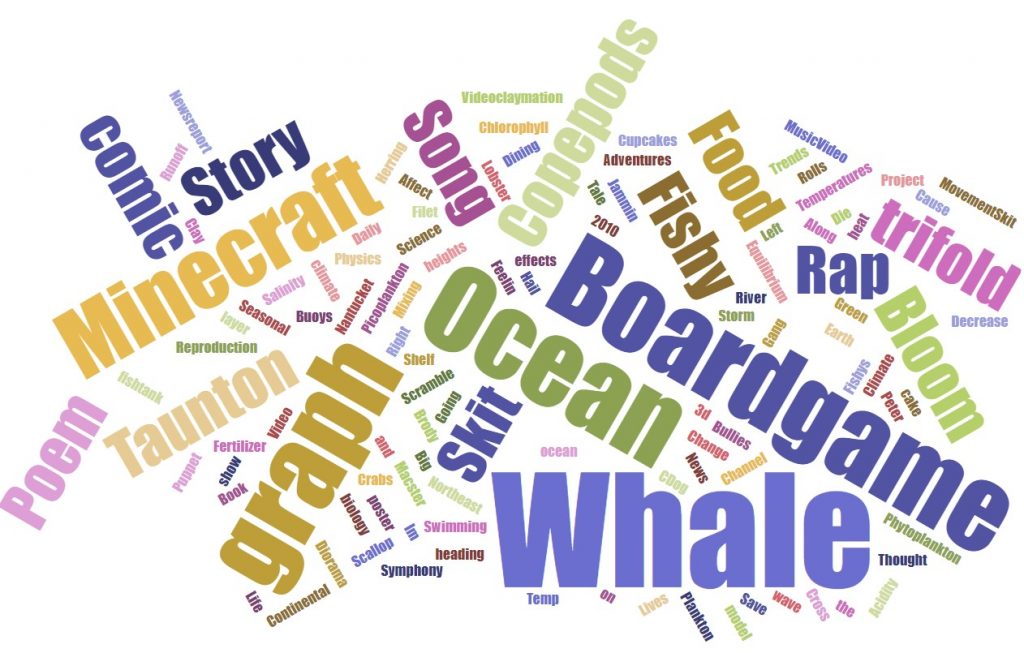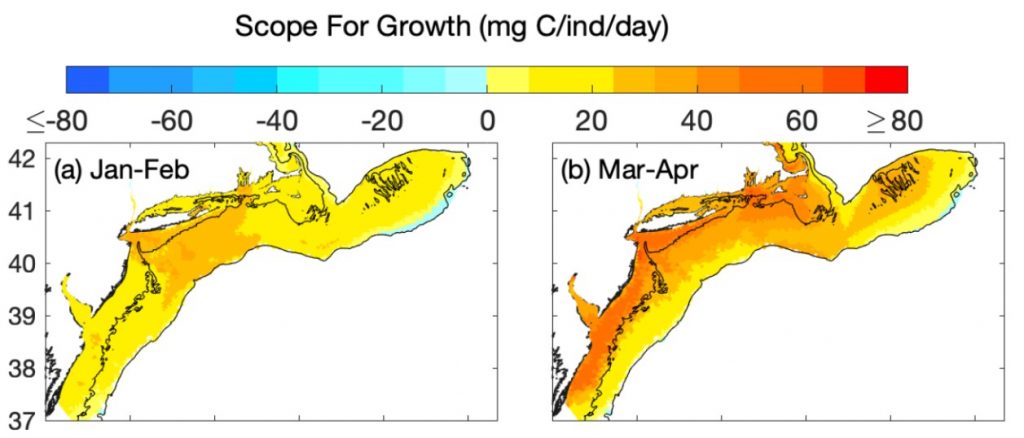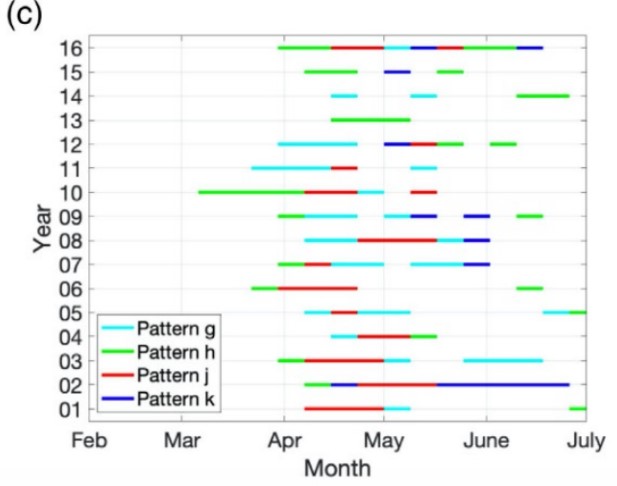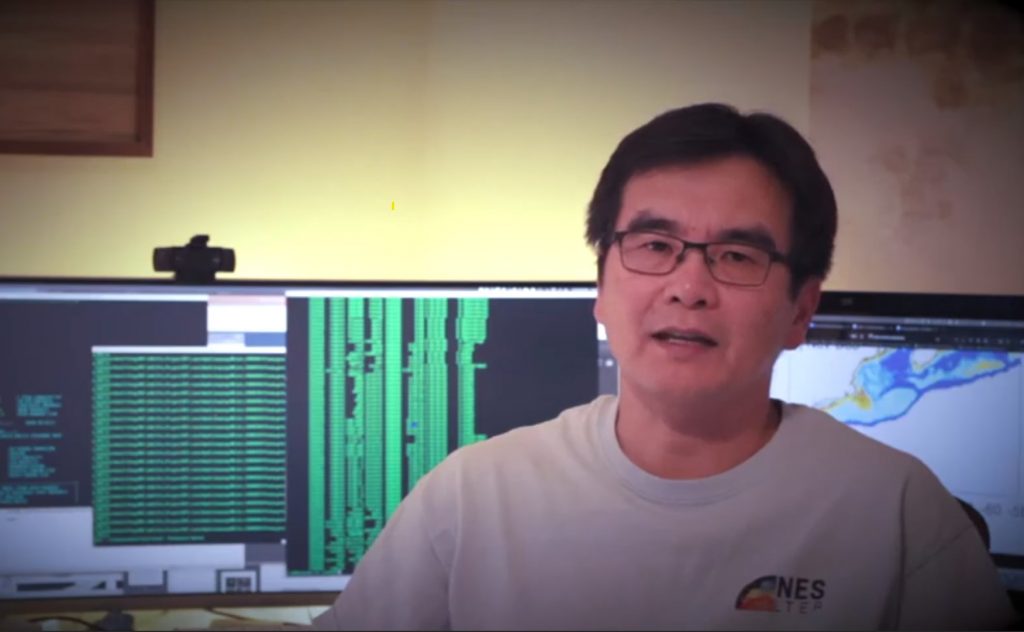News
A large part of the NES-LTER project’s K-12 education efforts are through data sharing and supporting data literacy. Our Data Jam is just a part of that effort. Co-PI Mei Sato and Education Outreach Coordinator, Annette Brickley, worked through several iterations of bioacoustic data visualizations and filtering to co-create a new product, a Data Nugget!…
Read MoreBrett, Joel (not pictured), Kate and her son hosted a tent as part of the Woods Hole Science Stroll to share about our work. Over 2000 visitors learned about forage fish, our transect line and seasonal work, and helped create a dataset quipu showing warming ocean temperature and how that affects fisheries species like lobsters.…
Read MoreS. Alejandra Castillo Cieza was an REU in Co-PI Rachel Stanley’s chemistry lab at Wellesley College in 2020 and 2021. It wasn’t just a pandemic pushing Alejandra to dig deeper into data analysis and lab work. She’s driven to unraveling data-driven stories and sharing them as she is now pursuing her PhD in Biology at…
Read MoreThis summer the Northeast U.S. Shelf Long-Term Ecological Research (NES-LTER) project hosted three undergraduate researchers in Woods Hole. All three presented posters at Woods Hole Oceanographic Institution (WHOI)’s annual summer student poster symposium held on August 10, 2023. Victoria Abunaw, a rising senior in Earth and Atmospheric Sciences at Cornell University, participated in WHOI’s Summer…
Read MoreIn our fifth consecutive year of Data Jamming as part of education and outreach for the Northeast US Shelf Long Term Ecological Research (NES-LTER) project, we are pleased to announce the winners! From 30 full Data Jam projects (116 students) and 6 Mini Jam projects (23 students), 3 high schools, and 2 middle schools– we commend…
Read MoreFour years ago, when our team attended the LTER Network All Scientists’ Meeting (ASM), we were “newbies”, only a year into playing our role in this long term network of researchers. After an extra 1-year delay of the meeting, our team returned with more attendees, more connections, more posters, more workshops, and more appreciation. Our…
Read More120 students and 38 projects from grades 7 through 12 generated raps, a symphony, dancing scallops and wind and satellites, claymation, cupcake data points, board games, poems, comic strips, and puppet shows. Students used 13 different datasets from the provided Data Jam datasets and entertained 17 judges from the NES research team for days. While…
Read MoreIn the recent publication of Fisheries Oceanography, Zhengchen Zang et al. share their sea scallop scope for growth (SFG) model. Scallop energy dynamics depend on the spatial and seasonal variability on the Northeast US Shelf. The scallop SFG model is therefore driven by high-resolution hydrodynamic and biological models and provides key information about scallop growth…
Read MoreIn a recent publication to Limnology and Oceanography Letters, Zhengchen Zang et al. share work on the role of silicate in the Gulf of Maine. In this study, they employed an artificial neural network method to identify the spring blooms from satellite images and reconstructed the spring bloom magnitude with strong interannual variability. This study…
Read MoreThe North Atlantic Right Whales depend upon a rich diet of copepods during their summer months in the Gulf of Maine and along the Northeast US Shelf. Understanding and predicting how changes in the ecosystem might affect the food chain leading up to these endangered whales is critical. Dr. Rubao Ji at the Woods Hole…
Read More


